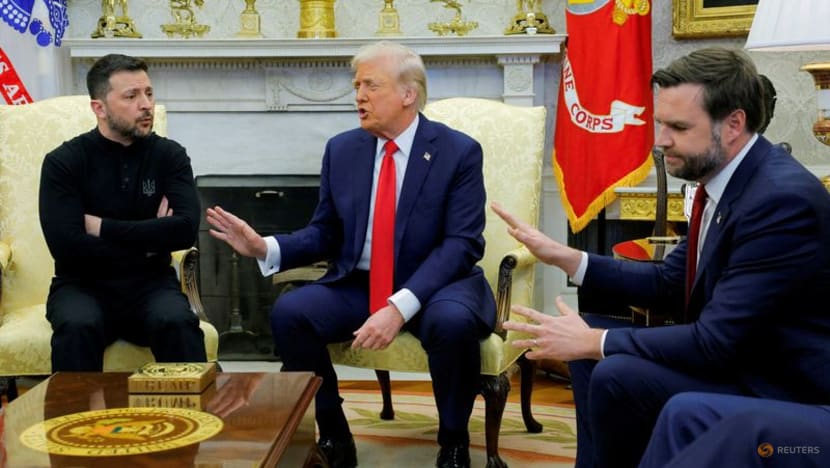While Trump Is Eyeing the Next 2 Years, China Is Looking at the Whole Century
(Taiwan) on 20 February 2025
by Yang Tengkai (link to original)
Yang holds a Ph.D. in international law and international organizations from the University of Virginia, and he has served as secretary-general of the Taiwan Association of International Relations, director-general of Taiwan’s Government Information Office, deputy secretary-general of Taiwan’s National Security Council, and as a professor at the National Taiwan University’s Department of Political Science. He is currently a professor at the Chinese Culture University’s Graduate Institute of National Development and Mainland China Studies, Taiwan, and at the National Taiwan University’s Department of Political Science, where his research interests include international law, international organizations, and various countries’ foreign policies.
The regular February meeting of the Third Wednesday Association, which consists of Taiwan’s heavyweight business leaders, was held on Feb. 19. Yang was invited to speak on the topic of “Trump 2.0 Developments and Asian Politics & Economics.”
Trump only has a four-year term, Yang said, and his approach this time will undoubtedly be different from the last one. The sole focus of Trump’s last term was China, while his second term is focused on the world. And since, under the U.S. system, Trump cannot be reelected president, he does not care who succeeds him. In terms of U.S. elections, the midterms will be in 2026, so Trump needs to scramble to have something to show for this year and next, which is actually only a very short period of time.
As Yang pointed out, Trump is now trying to end the Russia-Ukraine war, and the grand strategy in this regard is to secure the U.S.’ interests, improve U.S.-Russia relations, and turn the currently unequal triangle of the U.S., Russia and China into an equilateral one. This is the U.S.’ grand plan in terms of security, so the U.S. is now facing a critical moment.
What the next U.S. presidential election will bring is still very difficult to say, Yang stated. The Democratic Party may yet return to the White House, and even in the U.S. midterm elections, they could still gain control of the House of Representatives, so all Trump has is these two years in which to push forward with his agendas as quickly as possible, including the economy and tariff issues. But if things are handled too hastily, some backlash will be inevitable — and there are countries that are prepared to retaliate with tariffs of their own because what Trump is doing is actually rather clear to all of us.
Yang pointed out that, at this time, China is going about things steadily and surely, as it deals with its own economy, strengthens its high-tech and manufacturing industries, and handles Belt and Road operations in the Global South. At present, Trump’s America and mainland China are facing different directions: Trump’s America is only looking at the next two years, but mainland China has its eye on the entire century.
Trump does not like multilateralism, whether that means economic or security organizations, Yang said, but it does not mean that he attaches no importance to security and military issues. After all, the United States Space Force was established in Trump’s first term, and Trump is now pursuing enhanced government department efficiency, with the U.S. Department of Defense, the State Department and the military-industrial complex certain to be affected. But Trump has only two years in which to implement his policies, and supporting NATO setting up in Asia or strengthening regional military deployments are not likely to be among them.
But the most important thing, Yang argued, was the next confrontation between China and the U.S., and the key would not just be tariffs, of course, but issues including the economy, technology and military matters. The delicate and complex issue of the Taiwan Strait would come into focus, and with discussions between the U.S. and China having just started on whether to sign a fourth Joint Communiqué, it should not be forgotten that Trump is a “major deal-maker.”
Yang reported that the State Department recently removed the statement “we do not support Taiwan independence” from its official website, but that this likely represented the views of U.S. Secretary of State Marco Rubio. Trump must not have read the official website article, Yang said, so the statement did not necessarily represent his policy. Ultimately, in the rivalry between the U.S. and China, if Trump proves averse to using war to settle issues, he is bound to minimize the risk of war and use that as a bargaining chip in exchange for the interests he seeks to gain.
That, Yang stressed, was why Taiwan had to “tread very, very carefully.”


